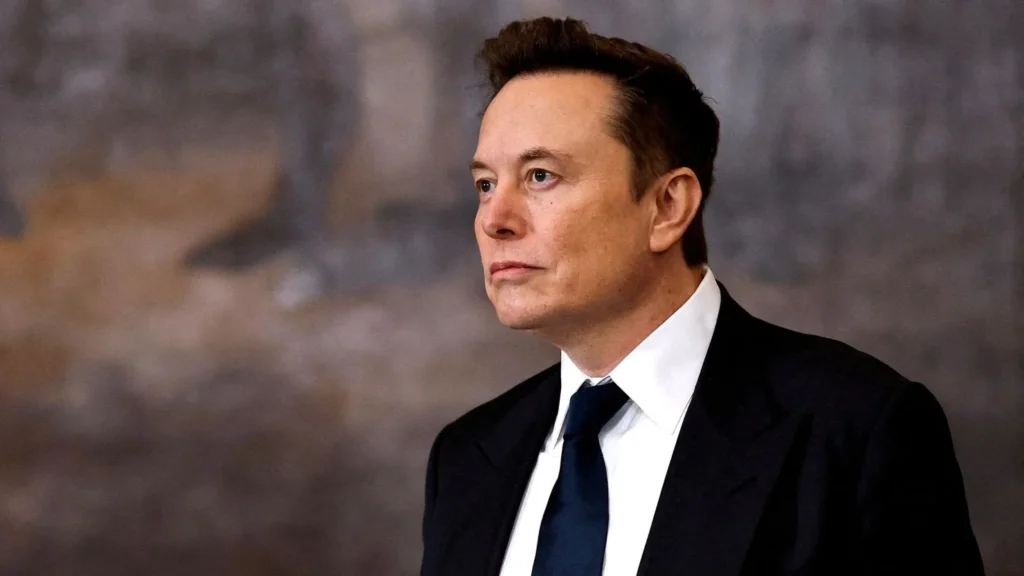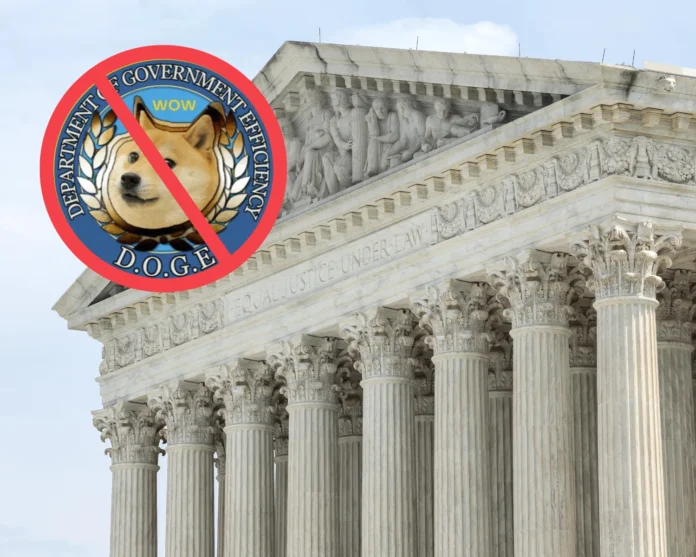Introduction
Federal Judge Blocks DOGE from accessing Treasury Department records containing sensitive financial and personal data of millions of Americans. This ruling, issued by U.S. District Judge Paul A. Engelmayer, comes after 19 Democratic attorneys general sued the Trump administration over DOGE’s unprecedented access to the federal payment system.
The lawsuit, filed in New York City, challenges the legality of DOGE’s involvement in reviewing government spending and claims that its access to the Treasury’s central payment system—which processes tax refunds, Social Security, and veterans’ benefits—violates federal law. This case has ignited a fierce debate over government transparency, data privacy, and executive overreach. Legal experts suggest that this case could set a precedent for how government agencies and third-party groups handle sensitive financial records, with some calling for additional legislative oversight.
What is DOGE, and Why Was It Blocked?
The Department of Government Efficiency (DOGE) was created under the Trump administration to eliminate wasteful government spending. However, its access to Treasury records raised security concerns among critics, who argue that an unelected entity should not handle sensitive financial data.
- Key Issues Raised in the Lawsuit:
- DOGE’s review of Treasury records violates federal privacy laws.
- The team allegedly sought to suspend payments for essential programs like healthcare and childcare.
- Concerns about DOGE interfering with funds already appropriated by Congress.
- Legal analysts worry that DOGE’s intervention could set a precedent allowing private entities to influence federal financial operations in unprecedented ways.
Judge Engelmayer ruled that all individuals who accessed Treasury data since January 20 must immediately destroy all downloaded records, reinforcing the court’s stance on protecting Americans’ private information. The ruling further emphasized that unauthorized access to government financial records could lead to severe civil and criminal penalties.
The Legal Battle: Key Arguments From Both Sides
Opposition to DOGE’s Access
New York Attorney General Letitia James, leading the lawsuit, criticized DOGE’s actions:
“This unelected group, led by the world’s richest man, is not authorized to have this information. They explicitly sought unauthorized access to block payments that millions rely on.”
Other attorneys general argue that the Treasury Secretary Scott Bessent changed longstanding privacy policies to grant DOGE unlawful access, potentially jeopardizing veterans, retirees, and taxpayers. Critics contend that these policy changes were implemented without proper congressional oversight and lacked necessary security reviews to assess the risk of data breaches.
The Trump Administration & Musk’s Defense

- Elon Musk, who has mocked critics on X (formerly Twitter), claims DOGE is saving taxpayers millions by eliminating waste.
- The White House has not commented on the lawsuit, leaving many questions unanswered.
- Treasury officials insist the review is simply an audit to ensure system integrity, with no direct impact on federal payments.
- Supporters of DOGE argue that blocking its access will hinder much-needed financial audits and allow bureaucratic inefficiencies to continue unchecked.
How This Impacts Federal Payments & Data Privacy
The case raises major concerns about government transparency and the security of federal payment systems:
- Data Privacy Risks: The lawsuit claims this is the largest data breach in American history.
- Possible Payment Suspensions: Allegations suggest DOGE planned to halt payments for USAID programs.
- Congressional Investigation: Democratic lawmakers have called for a Treasury Department probe into DOGE’s access.
- Public Trust: Some watchdog organizations claim that DOGE’s access to confidential financial records has eroded trust in the federal payment system, potentially leading to increased scrutiny of similar government initiatives in the future.
Connecticut Attorney General William Tong warned:
“DOGE is an unlawfully constituted band of renegade tech bros combing through confidential records. What could go wrong?”
Meanwhile, labor unions and advocacy groups have also sued to block DOGE’s review, citing concerns over its legality and potential misuse of federal funds. These groups argue that allowing it to continue its operations unchecked could pave the way for more private sector influence over government finances.
What Happens Next?
The ruling is a temporary injunction, meaning the legal battle is far from over. Key next steps include:
- Further Court Hearings: The case could reach the Supreme Court if it appeals.
- Congressional Oversight: Lawmakers may push for legislative reforms to limit executive control over financial data.
- Public Scrutiny: With Musk’s involvement, public interest in its operations continues to grow.
- Future Policy Changes: Some lawmakers are considering new data security laws that would prevent similar disputes in the future by restricting third-party access to government financial records.
This case represents a landmark legal challenge in the intersection of government efficiency, executive power, and data privacy. The question remains: Should an entity like DOGE have access to such vast amounts of financial data? And if not, what safeguards should be in place to prevent similar cases from arising in the future?


